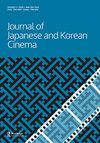早期电视纪录片中的多媒体导演主义:日本的非虚构剧场
引用次数: 0
摘要
随着20世纪50年代末和60年代日本电视的兴起,电视纪录片作为一种新兴的类型成为多方争论的焦点。本文考察了两部电视纪录片《揭开面具的日本》(Nihon no sugao)和《非虚构剧场》(Non-fikushon gekijhi),以及围绕它们的论述,尤其是《揭开面具的日本》的辩论。在辩论中,Hani Susumu强调,电视纪录片的政治意义在于业余爱好者试图用不熟悉的镜头和麦克风捕捉他们的经历。然而,这种对业余的强调也带来了一些问题:业余爱好者成长为专业人士,他们在公司结构中失去了自主地位。非虚构戏剧之父Ushiyama Jun 'ichi呼吁左翼政治先锋作品的遗产,通过邀请具有政治声音的电影制作人(如Ōshima Nagisa)制作电视纪录片来回应这一问题。从《揭开日本的面具》的业余主义到《非虚构戏剧》的导演主义,这些辩论都在寻求电视纪录片作为一种改变人们对日常世界看法的力量的政治可能性。本文认为,由此产生的多媒体导演主义的实施,即由政治导演制作的电视纪录片,是在这种新生类型中继续进行视听实验所不可或缺的,而这种实验正面临着在电视工业发展中消失的危险。本文章由计算机程序翻译,如有差异,请以英文原文为准。
Multimedia auteurism in early television documentary: Japan Unmasked and Non-Fiction Theatre
ABSTRACT With the rise of television in late 1950s and 1960s Japan, television documentary became the focus of multiple debates as a fledgling genre. This article examines two television documentary series, Japan Unmasked (Nihon no sugao) and Non-Fiction Theatre (Non-fikushon gekijō), and the discourse surrounding them, particularly the Japan Unmasked debate. In the debate, Hani Susumu emphasized that the political significance of television documentary lies in amateurs’ attempts to capture their experiences using the unfamiliar camera and microphone. This emphasis on amateurism, however, involved problems: the growth of amateurs into professionals and their loss of an autonomous position within the corporate structure. Calling upon the legacy of left-wing political avant-garde work, Ushiyama Jun’ichi, the father of Non-Fiction Theatre, responded to the issue by inviting filmmakers with political voices such as Ōshima Nagisa to television documentary. The debates, from amateurism in Japan Unmasked to auteurism in Non-Fiction Theatre, sought the political possibility of television documentary as a changing force on people’s views towards the everyday world. This article argues that the resulting implementation of multimedia auteurism, television documentary made by a political auteur, was integral to continuing audio-visual experimentation in the new-born genre, which was in danger of being lost in the development of the television industry.
求助全文
通过发布文献求助,成功后即可免费获取论文全文。
去求助
来源期刊

Journal of Japanese and Korean Cinema
Arts and Humanities-Visual Arts and Performing Arts
CiteScore
0.60
自引率
0.00%
发文量
16
期刊介绍:
Journal of Japanese and Korean Cinema is a fully refereed forum for the dissemination of scholarly work devoted to the cinemas of Japan and Korea and the interactions and relations between them. The increasingly transnational status of Japanese and Korean cinema underlines the need to deepen our understanding of this ever more globalized film-making region. Journal of Japanese and Korean Cinema is a peer-reviewed journal. The peer review process is double blind. Detailed Instructions for Authors can be found here.
 求助内容:
求助内容: 应助结果提醒方式:
应助结果提醒方式:


